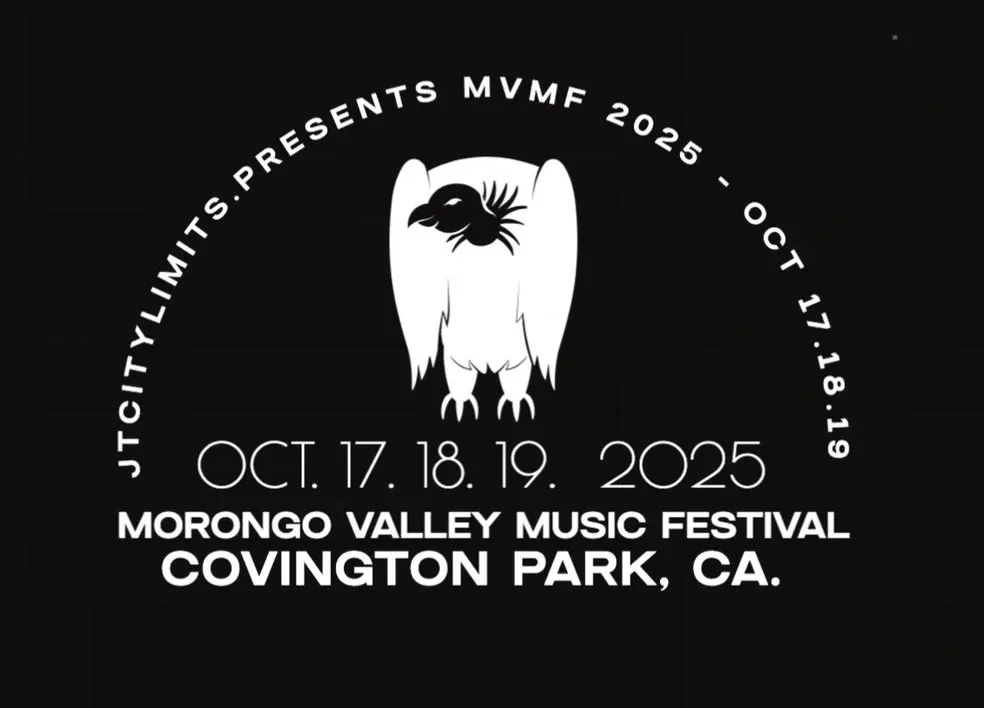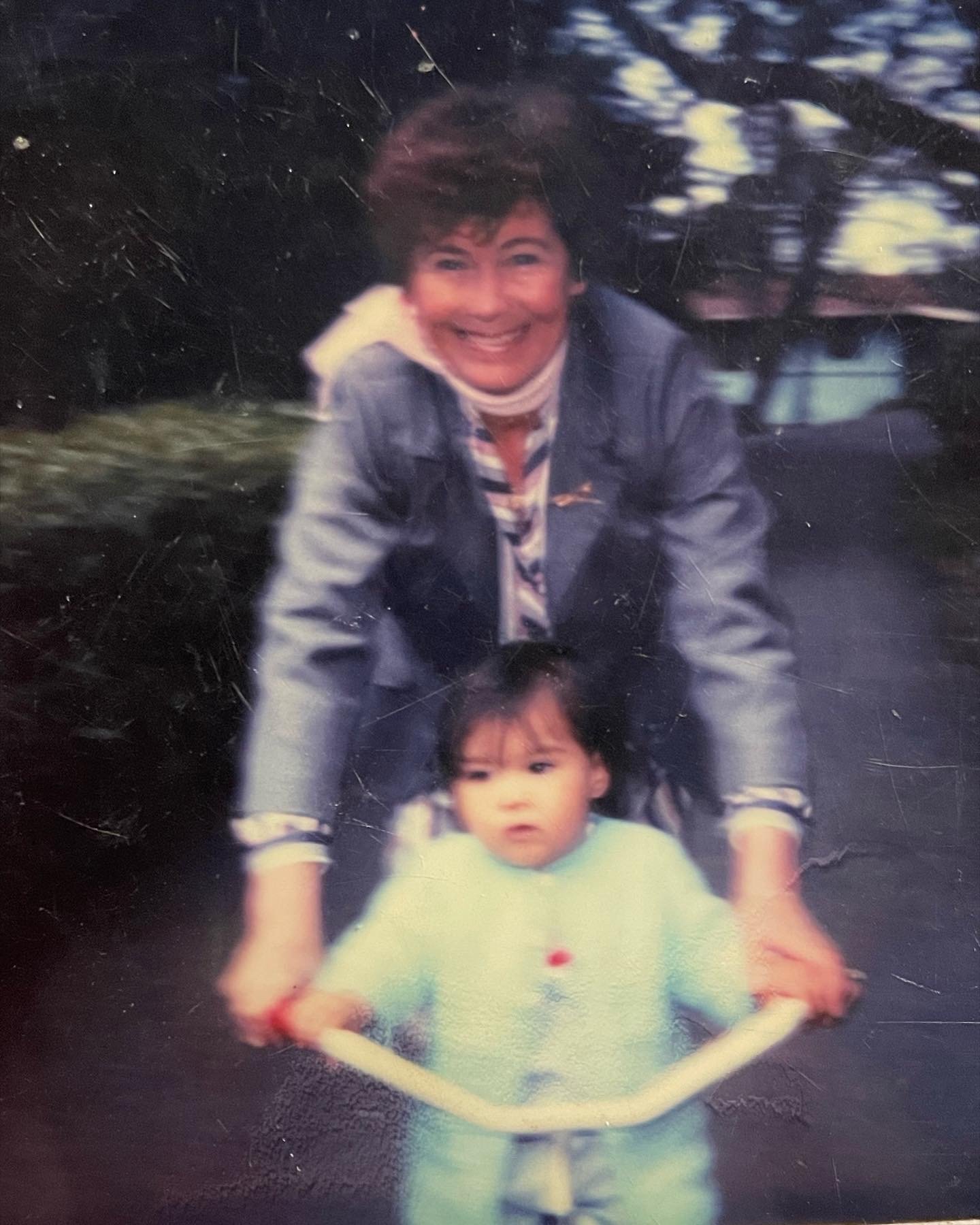FOR YOUR GRAMMY® CONSIDERATION "MOURNING DOVES OF JOSHUA TREE" BY TARA BEIER
BEST FOLK ALBUM
“Supple and elegant yet with a wickedly appealing edge, Mourning Doves of Joshua Tree is surely one of the best albums of the year. ”
“It comes as no surprise to find that Beier has a background in filmmaking, as each track sets a scene, plays out a scenario, and the album itself feels like the soundtrack to a movie as much as a collection of songs. Someone call Terence Malick right now!”
Song: Desert Soul
Folk for a new generation — poetic, powerful, and unapologetically personal.
Tara Beier brings the spirit of classic folk into a modern landscape — not by imitation, but through invention. Her sound is singular and cinematic, born of silence and sand, shaped by motherhood, healing, and truth. Each song on Mourning Doves of Joshua Tree stands on its own — yet together, they form a seamless tapestry, written across the changing seasons of the Mojave Desert. This is not folk revival. This is folk rebirth.
Song: Rainbow
Rainbow is a song about boundaries — the invisible lines drawn around the heart to protect its tenderness. Love invites closeness, but hurt can create distance, and sometimes it becomes unclear how to let others in again. There’s a recovery concept known as “rainbow boundaries,” where people are imagined at different points along a rainbow — some near, some farther — not cut off, just held at a distance that feels safe. The clips in this reel — from Donkey Skin (Peau d’Âne, 1970) directed by Jacques Demy and starring Catherine Deneuve, Persona by Ingmar Bergman (with Bibi Andersson and Liv Ullmann), and The Mirror (1975) by Andrei Tarkovsky — explore themes of love, illusion, and emotional distance.
Photo by Jessica Castro, DESERT CHRIST PARK — JOSHUA TREE, CA
Mourning Doves of Joshua Tree — A cinematic folk odyssey of grief, rebirth, and healing.
Written in the Mojave Desert while raising her twin sons and grieving the loss of her grandmother.
Mourning Doves of Joshua Tree is a meditation on impermanence, healing, and creative rebirth.
Produced by Steve Stout (Lifehouse); blends desert soul, alt-folk, and Americana.
For fans of Neil Young, Mazzy Star, and Fleetwood Mac — with introspective, transcendent lyrics.
Shooting Star —Mourning Doves of Joshua Tree
Song: I Close The Door
Tara Beier is a Canadian-American singer-songwriter, filmmaker, and activist whose cinematic folk sound transcends boundaries — fusing healing, identity, and activism into deeply personal works of art. Her 2025 album, Mourning Doves of Joshua Tree (Manimal Records), is a striking meditation on grief, rebirth, and transformation — inspired by her near-death experience during childbirth, her journey through IVF, and the quiet spiritual power of the California desert. With acclaim from Rolling Stone, Paste Magazine, and Billboard, Beier's voice speaks to a generation longing for authenticity, truth, and emotional resonance.
Born in Vancouver and now based in California, Beier is a proud immigrant whose multicultural roots—Filipino, British, Austrian, and Scottish—bring a rich, cross-cultural soul to her music. She began playing piano at just five years old and spent over a decade immersed in classical training at the Royal Conservatory of Music. That intense early education, carried through even in the face of personal trauma, became the foundation for the expressive musical language she uses to share her story today.
After more than a decade of living in California, Beier became a U.S. citizen in 2024—an achievement that reflects years of perseverance and growth. “I’m a proud American immigrant and a lover of this country,” she says. “It’s given me the space to heal and create freely.” Her journey, both personal and musical, continues to be shaped by the places she’s called home and the resilience that drives her forward.
Her path to music wasn’t linear. With a degree in criminology and an early interest in justice reform, Beier originally planned to enter law — but her life changed course when she portrayed folk legend Buffy Sainte-Marie in a biopic. The role awakened a creative calling that led her to songwriting, filmmaking, and performance.
In 2016, she released her debut album Hero & the Sage, produced by Bret Higgins (Great Lake Swimmers). Its title track was chosen for the Biden-Harris Inauguration’s “100 Days, 100 Nurses” campaign, reflecting her commitment to art in service of public good. Her next release, California 1970, featured collaborations with Adam Zimmon (Ziggy Marley) and recordings at the iconic Village Studios in L.A. Her single “Forgiveness,” produced by Grammy-winner Doug Boehm, was a raw reflection of her own healing through therapy and 12-step recovery programs.
Her 2020 sophomore album Super Bloom, produced by three-time Grammy nominee Ken Coomer (Wilco), expanded her folk roots into lush, Americana-infused terrain. Two years later, she released Her Story, a reverent covers EP celebrating women in folk like Joni Mitchell, Joan Baez, and Sybille Baier. Her stirring take on “California” aired live on Daytime Chicago.
But it is with Mourning Doves of Joshua Tree that Tara Beier makes her most fearless artistic leap. Written in the solitude of the Mojave Desert while raising her twin sons, the album is a soul-stirring tapestry of loss, love, spiritual renewal, and maternal strength. Seeking refuge in the desert landscape, Beier found unexpected comfort in a quiet but powerful symbol: mourning doves began appearing outside her window—each pair arriving with two babies, mirroring her own journey through motherhood.
“They mirrored my own experience of motherhood,” she recalls. “Mourning doves are said to be messengers from the other side. I felt my grandmother’s presence through them.” Just before her passing, Beier’s grandmother had left her with a final, resonant message: “You go now with your boys.” That moment became a quiet but guiding force behind the album, anchoring its themes of grief, transformation, and rebirth.
Named after the doves that nested near her home—a sign of peace and spiritual presence—the album blends haunting folk with desert soul and Americana textures. Produced by Steve Stout (Lifehouse), it channels the emotive depth of artists like Neil Young, Nick Cave, and Mazzy Star, while remaining unmistakably her own. Mourning Doves of Joshua Tree stands as a testament not only to Beier’s evolving artistry, but to the healing power of music, nature, and the unspoken bonds that connect generations.
Beier’s music is more than sonic — it’s cinematic. It evokes silence, solitude, and the sacredness of nature. Through her lyrics and activism, she champions women’s fertility journeys, climate consciousness, and the deep intersection between art and healing. She is the founder of Lovendar, a lavender-based fragrance line inspired by her postnatal sensitivity — another example of how her creativity flows from every part of life.
With performances at The Troubadour, Rockwood Music Hall, Canadian Music Week, and Riverfest (alongside MGMT), and features in Harper’s Bazaar, GQ, NBC News, and The New York Times, Beier has become a distinctive and respected voice in indie folk.
As a biracial AAPI woman in a genre historically shaped by white male voices, Tara Beier redefines what folk can be: poetic, powerful, and unapologetically personal. Her songs are stories. Her voice is a vessel. And her latest album is not just a collection — it’s a healing.
Song: Desert Soul
Song: Lost Brother
“Known for her motherly feminine and yet fearless aura, she has been christened a trailblazer by many in the music scene. Her catchy ‘earworm’ melodies, poetic lyrics, and down to earth confidence are celebrated by indie-rock music connoisseurs. ”
Tara Beier – For Your Consideration | Best Folk Album
Folk is truth. Tara Beier lives that truth—musically, spiritually, and personally.
Canadian-American artist, activist, and filmmaker blending cinematic folk with themes of grief, resilience, identity, and spiritual rebirth.
New album: Mourning Doves of Joshua Tree (Manimal Records, 2025) — written in the Mojave Desert after surviving near-fatal childbirth and becoming a mother to IVF twins.
Vocals described as “hauntingly lovely” (Paste); often compared to Fiona Apple and Sheryl Crow.
Billboard: “Proves motherhood doesn’t diminish creativity—it amplifies it.”
Rolling Stone: Celebrated for poetic lyrics, trailblazing spirit, and ear worm melodies.
Song: Rocketdyne
“Her music here has rich harmonies, nuanced musical arrangements, and thoughtful lyrics, making it feel like a silent discussion with the listener. ”
A New Voice in Contemporary Folk
Biracial AAPI artist bringing a rare and vital perspective to folk music
Classically trained since age five, with a lifelong foundation in music and storytelling.
Artistry shaped by lived experience: PTSD, family trauma, fertility struggles, and spiritual awakening.
Driven by social consciousness and a commitment to truth through song.
“With the power and insight she showcases on ‘Mourning Doves of Joshua Tree’, music just might be Tara Beier’s biggest sanative asset of all. ”
Song: Desert Soul
“Tara Beier isn’t just creating music; she’s showing the world that strength, creativity, and motherhood can exist together...With themes of self-discovery, resilience, and healing woven into every note, her music reflects her personal journey that resonates deeply with her growing audience. ”
Credits
PRODUCER, STEVE STOUT
Steve Stout is a Nashville-based guitarist, songwriter, producer, and recording engineer whose musical reach spans chart-topping rock, cinematic folk, and genre-defying indie. Best known as the lead guitarist for Lifehouse since 2015, Stout is also one half of the band ØZWALD, a collaborative project with Lifehouse frontman Jason Wade. Together, they’ve released five full-length albums since 2019, all tracked in the studio the duo built themselves—an experimental haven where “no rules” fuel the creativity.
In 2023, Stout stepped out as a solo artist with his debut full-length album Dairy Made (via Allswell Records), a ten-song collection that marked his evolution from arena rocker to indie-folk storyteller. The standout single “Some Folks”—a track born out of a fever dream and a test amp session—was selected as a KCRW “Today’s Top Tune”, drawing comparisons to Fruit Bats, Kurt Vile, and the sunny disorientation of 70s psych-folk. As KCRW put it, Stout’s shift toward a “less lo-fi” and more textured sound suits his nuanced songwriting and off-kilter production style.
Alongside his solo and band work, Stout continues to write for sync, score film, produce and mix for other artists, and collaborate widely across genres. He’s previously performed with Kiefer Sutherland, Switchfoot, Blondfire (Warner Bros.), and Lost Beach, and holds a Bachelor of Music in Guitar Performance from Berklee College of Music. Whether onstage, behind the console, or lost in a late-night mix session, Stout remains a restless creator—always chasing the next sound, the next story, the next song.
Recorded at The Village Studios, Los Angeles (Engineered by Alex Williams, Grammy winner/ Jon Baptiste)
Alex is a Grammy Award-winning audio engineer, mixer, and producer with a wide-ranging portfolio across Rock, Pop, Hip-hop, Electronic, Orchestral, and Americana. Skilled in Pro Tools, Ableton, and Logic, he brings deep technical expertise and creative insight to every project he touches.
Alex began his career in 2007 as a live sound engineer at the Key Club in West Hollywood, mixing for artists like The Roots, Stevie Wonder, Public Enemy, and more. After earning a B.S. in Music Industry from USC’s Thornton School of Music in 2009, he joined The Village Studios in Los Angeles. Rising through the ranks to senior engineer, Alex has worked on everything from albums and film scores to live broadcasts, while continuing to freelance and produce original music.
In 2019, he became a voting member of the Recording Academy and won a Grammy at the 64th Annual Awards for his engineering work on Jon Batiste’s We Are.
Alex is also the main engineer for Tara Beier’s album Mourning Doves of Joshua Tree, and has played a central role in several of her projects. He engineered her covers album Her Story, which celebrates both iconic and overlooked female songwriters of the 1960s and ’70s—including Joan Baez, Joni Mitchell, Sybille Baier, and Barbara Keith. As Tara’s go-to engineer at The Village, Alex has been a consistent source of technical excellence, creative support, and collaborative spirit.
Goat Mountain Recording Studios, Landers, CA (Engineered by Pat Kearns)
Pat Kearns served as second engineer on select tracks from Tara Beier’s album Mourning Doves of Joshua Tree, lending his technical expertise and deep musical sensibility to the project. A respected producer, engineer, and musician, Pat is best known for his work on Guitar Romantic by The Exploding Hearts, and as the frontman of Portland’s Blue Skies for Black Hearts. His production and engineering credits include artists like Jerry Joseph, Walter Salas-Humara, and Pat MacDonald.
Now based in the Mojave Desert, Pat and his wife Susan built Goat Mountain Studio, a solar-powered, off-grid recording facility near Joshua Tree. The studio merges vintage analog gear with modern tech in a one-of-a-kind desert setting, offering a creative environment that’s both rugged and refined.
Pat’s contributions to Mourning Doves of Joshua Tree reflect his ability to support and enhance an artist’s vision with precision, warmth, and respect for the music.
Goat Mountain Recording Studios, Landers CA
RECORD RELEASE SHOWS
APRIL 13, 2025 - PAPPY & HARRIETS, PIONEERTOWN, CA
SEPT 11, 2025 - WHISKY A GO GO, WEST HOLLYWOOD
OCT 19, 2025 - MORONGO VALLEY MUSIC FESTIVAL, JTCITYLIMITS PRESENTS
Pappy & Harriets Performance Photos
Dedicated to Mary Lou Konrath
This album is lovingly dedicated to my grandmother, Mary Lou Konrath. Thank you for always being with me, and for the serenity you send through the gentle spirit of the mourning dove — a quiet messenger from beyond. Your life has been my compass: humble, faithful, kind. A woman of compassion, charity, and quiet grace. I love you.
Mourning Doves of Joshua Tree is a debut that reimagines folk for a new generation—deeply rooted in storytelling and emotional truth, yet sonically expansive and unconstrained. Shaped by the Mojave Desert and the introspective solitude it inspires, the album blends alt-Americana, indie-folk, psych textures, and lo-fi soul into a body of work that feels at once timeless and unmistakably current.
Across nine tracks, it explores grief, creative rebirth, and spiritual grounding—bridging traditional folk sensibilities with modern production and a genre-fluid edge.
Track Overview
Desert Soul
A hypnotic, rhythm-forward opener that draws from Southern gothic and desert noir aesthetics. Inspired by The Alchemist and the mythology of the artist’s path, the track blends gritty textures and ghostly vocal layers, evoking Nick Cave, The Kills, and the slow-motion urgency of a dream.Lost Brother
A sparse, folk elegy rooted in personal and generational loss. The story of a long-lost relative becomes a meditation on memory, told through lo-fi guitars, soft dissonance, and layered harmonies. A haunting moment of stillness that connects past to present.Rainbow
A gentle psych-folk vignette centered on emotional boundaries. With vintage-leaning harmonies and dreamy slide guitar, this track uses the metaphor of a spectrum to map out relational closeness. A reflection on human connection with echoes of Big Thief and Tennis.Close the Door
Sunlit alt-Americana with a quiet ache beneath the surface. Written during a literal clean-out, the track takes on the emotional act of releasing the past. Upbeat but wistful, it fuses Tom Petty–esque narrative ease with Norah Jones–style intimacy.Rocketdyne
A desert departure anthem—the beginning of a new chapter. Marking the artist’s escape from the city and return to clarity, this track pulses with steady resolve and sun-bleached warmth. Stylistically grounded in 70s rock and California folk, it embodies a mantra of self-preservation and creative survival.Lost in Death Valley
Inspired by a real survival story, this track becomes a minimalist folk ballad about vulnerability, surrender, and the harsh beauty of the desert. Quietly cinematic, with echoes of Wilco and Bonnie “Prince” Billy, it sits at the edge of myth and lived experience.Mourning Dove (Title Track)
A spiritual centerpiece, both emotionally and sonically. Rooted in childhood memories and symbolic loss, the song moves from bare-bones simplicity to layered, harmony-rich serenity. Drawing from Sheryl Crow, George Harrison, and American folk traditions, it offers a gentle release.Shooting Star
A lo-fi, 90s-inspired meditation on presence and distraction. Written under an actual meteor shower, the song unfolds with dreamlike restraint—drawing listeners into a space of quiet clarity, wrapped in Mazzy Star–esque atmospherics.Wild Rejoice
A bold and sensual closer, fusing folk structure with electronic movement. Built on a foundation of minimalist synths and percussive restraint, it crescendos into a vibrant anthem of freedom and embodiment. A modern folk rallying cry: “Let the Wild Rejoice.”
Mourning Doves of Joshua Tree offers a fresh voice in the folk tradition—one that honors its emotional core while expanding its boundaries. With elements of alt-country, indie rock, and cinematic soul, the album speaks to the evolving identity of Americana and folk music in the 21st century. A debut built on depth, vision, and fearless vulnerability.
































